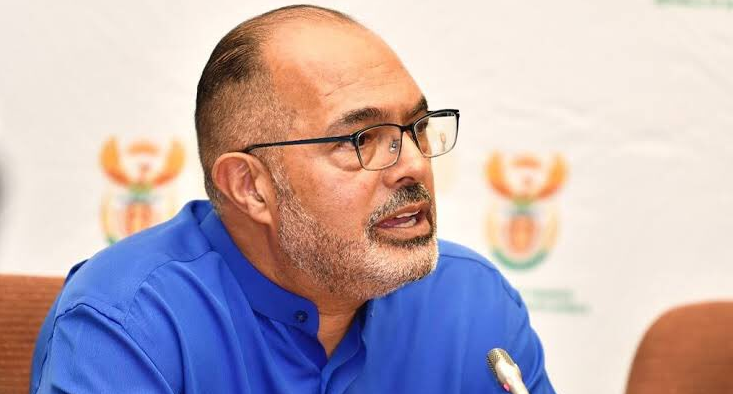Charles Molele
The SA Revenue Services Commissioner Edward Kieswetter on Tuesday said the novel coronavirus national lockdown has led to a huge decline in revenue tax collection to the tune of R285 billion, piling anguish on an already battered South African economy.
Kieswetter was briefing the joint Standing and Select Committees on Finance in Parliament along with National Treasury on the strategic annual performance plans and budget for the 2020/2021 financial year.
He said the pandemic has had a huge impact on tax revenue collection, adding that in April this year revenue collections fell 8.8% year-on-year to R9 billion as a result of the pandemic and measures to contain its spread.
“Whilst it is early days, our initial view is that revenue performance will be lower than the February Budget announcement by between 15%-20%. This means that revenue under-recovery could move up to R285 billion,” said Kieswetter.
“A major concern that we have from a revenue perspective is not only a downward trend of economic activities, but a loss of economic capacity due to businesses closing and job losses.”
Kieswetter said the full impact of this will manifest over the next few months, depending on how government manages the phasing in of economic activities.
“Many businesses will simply not be able to operate profitably at reduced capacity and will fail completely. Those who have started businesses from scratch, will know how hard it is to start a business – it often takes 100 business ventures to start one successfully! The loss of economic capacity in our economy will have long-term tax revenue implications,” he said.
Kieswetter said rebuilding SARS would require time and consistent efforts.
“The current challenges presented by Covid-19, the investment downgrades, and the most significant economic contraction in recent times, have on the one hand made our work just so much harder, but the same time, we are blessed with a solid foundation, many committed men and women, and a crisis which we are determined not to waste,” he said.
“We remain committed and inspired to pursue the important work we are privileged to do.”
National Treasury presented an annual budget of R33.1 billion which will be spent under seven departmental programmes.
“This is a very
difficult time and we need to sharpen our minds in finding solutions to lift us
from the crisis. The biggest challenge has been the lack of revenue collection
due to reduced economic activity and this will affect our plans to fund
government programmes,” said Mboweni.
The portfolio on
finance chairperson Joe Maswanganyi advised the National Treasury to consider
revising its annual plan to deal with the economic structural reform measures,
in order to address the challenges of poverty and joblessness.
The parliamentary committees welcomed the statement from Mboweni
that small, medium and micro-enterprises and cooperatives should be given equal
opportunity in the procurement of personal protective equipment for Covid-19,
as long as they meet prescribed minimum standards.
The committees held the firm view that the national disaster
arising from the Covid-19 pandemic was not a license to suspend application of
the Constitution and other legislation concerning procurement.
Maswanganyi
emphasised that procurement processes during the state of national disaster
must be conducted within the framework of existing statutes, including Section
217 of the Constitution, the Preferential Procurement Policy Framework Act and
the Broad-Based Black Economic Empowerment Act.
He further called on lobbyists advocating for the sale of
cigarettes during level 4 lockdown to base their argument on facts, with
respect to the claim that the government stands to lose on tax revenue
collection.
“The sale of cigarettes falls under the excise duty tax
category, which contributes only 3.2% to the revenue. Under the same category,
cigarette sales come second, below alcohol. The biggest contributors to the
national revenue are personal income tax (38.3%); value-added tax (25.2%) and
corporate tax (16.6%).,” said Mr Maswanganyi.
Meanwhile, tobacco producers have launched a court challenge opposing the government’s ban on the sale of cigarettes.
British American Tobacco, part of Johann Rupert’s investment vehicle, has given co-operative governance minister Dr Nkosazana Dlamini-Zuma an ultimatum to reverse the ban or face court action.
The tobacco giant argues that President Cyril Ramaphosa had initially announced that the sale of tobacco and cigarettes would be allowed.
(Compiled by Inside Politics staff)

